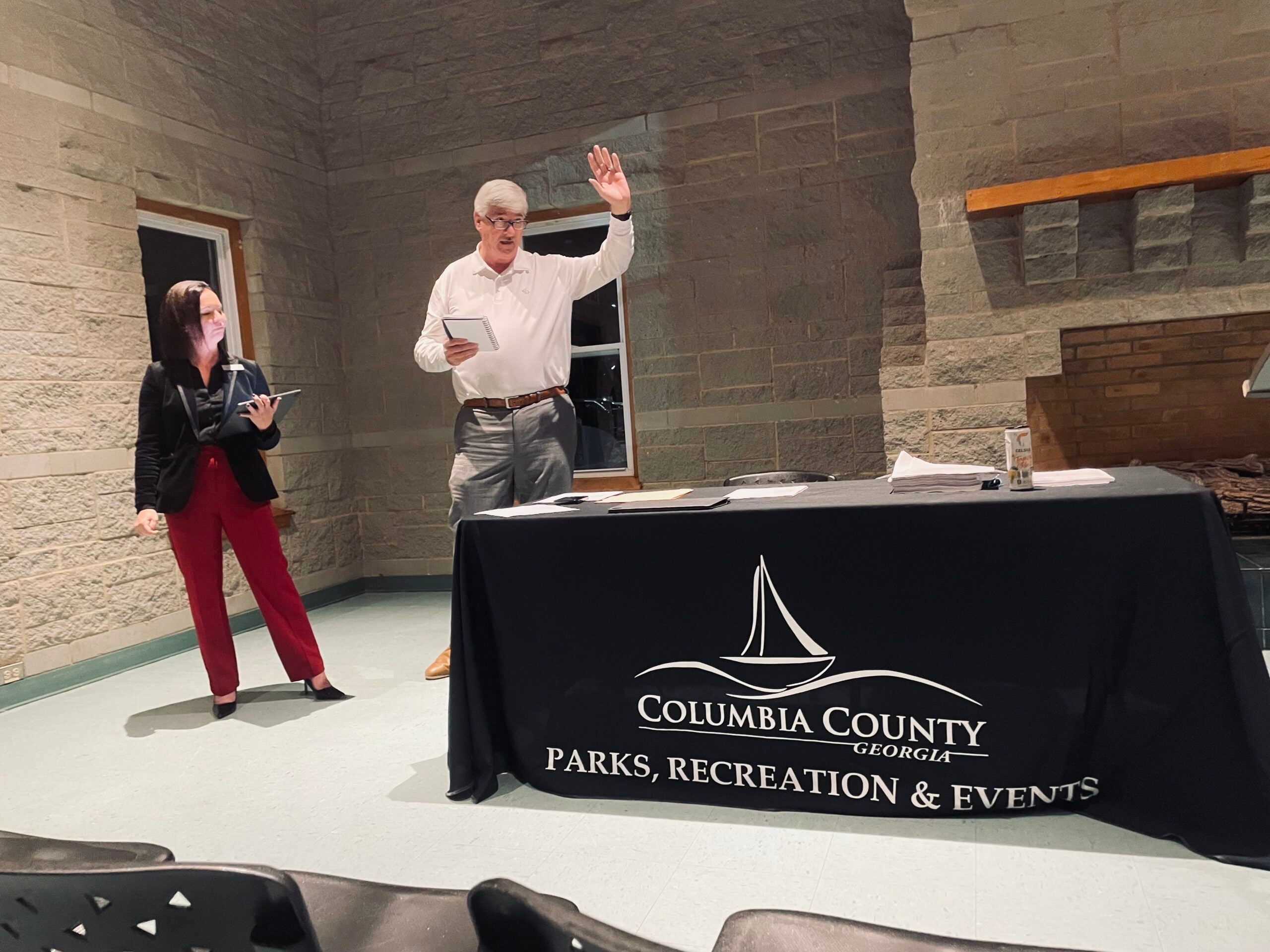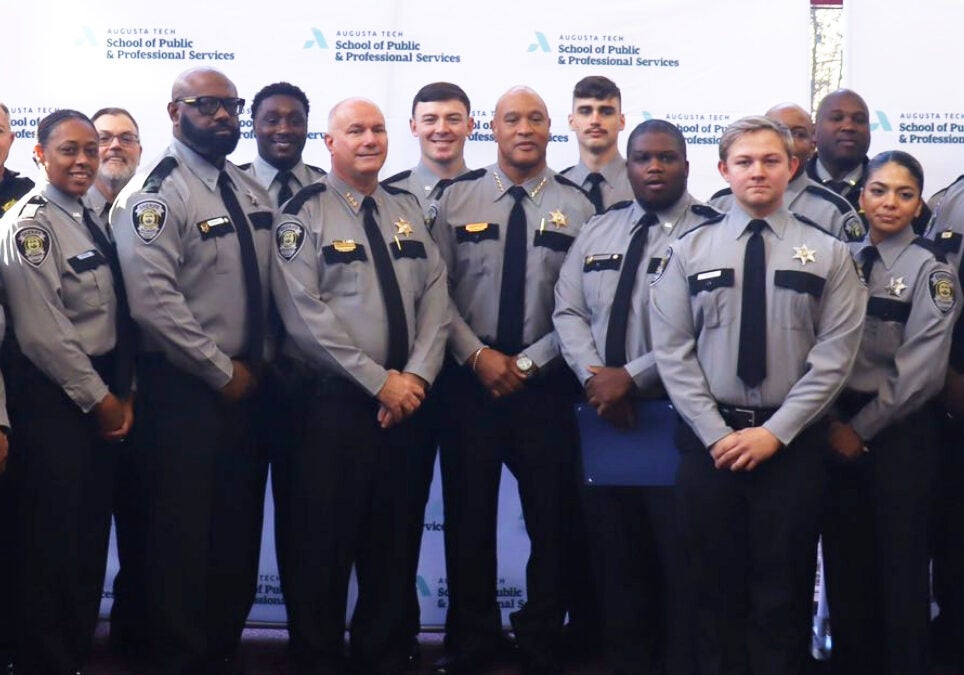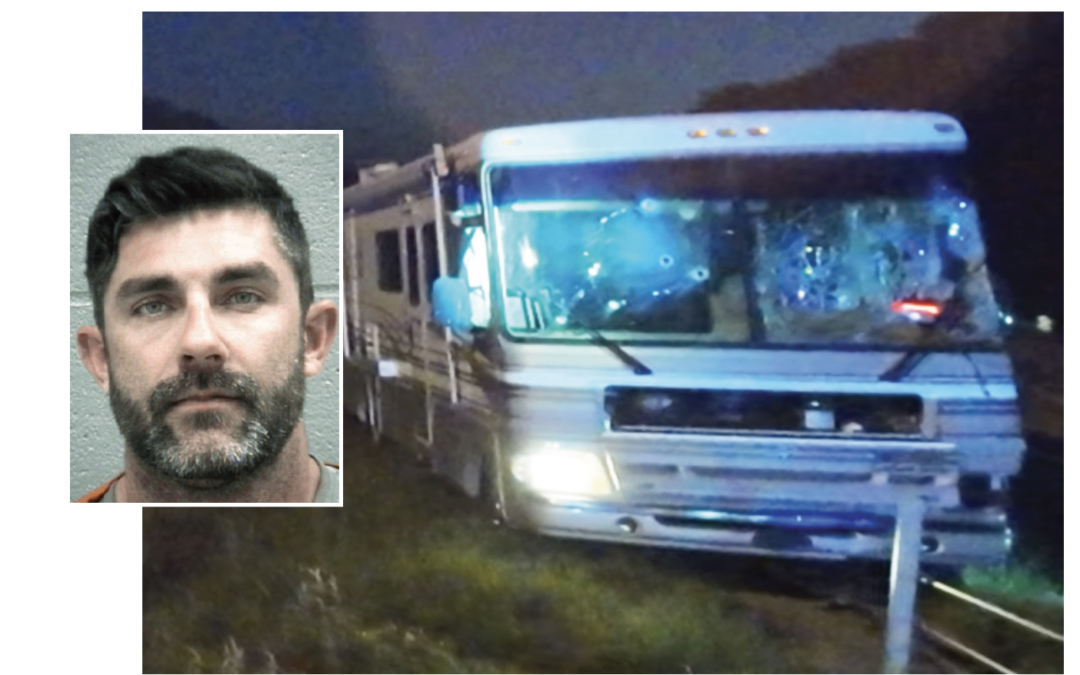The prospect of incorporating and consolidating Columbia County persisted as a topic of discussion at a town hall meeting in Appling, Thursday evening.
Sheriff Clay Whittle, Rep. Gary Richardson and Coroner-elect Terry Norman were among those in attendance at the meeting at the Eubank Blanchard Community Center, tabled from its original scheduling for early October due to Hurricane Helene.
County Commissioners Michael Carraway and Alison Couch, of Districts 3 and 4 respectively, hosted the event, welcoming residents to receive updates on various county initiatives and to present their inquiries.
Fielding questions from the audience of approximately 50 Columbia County residents, both commissioners reiterated several details publicized by the county about the issue thus far: that the BOC, should it decide to seek turning Columbia County in to a city, would host a series of public meetings informing citizens of the pros and cons and collecting their input, including on a potential name for the incorporated city. The commissioners would then vote on whether to seek approval from the state legislature of a redrafted bill for consolidation and incorporation.
MORE: Columbia County is only considering consolidation, for now
Carraway also noted, responding to a question, that $100,000 has been approved by the BOC out of the county budget to use towards any further action regarding consolidation and incorporation.
Last year commissioners approved that amount to be used toward the study conducted by Valdosta State University, the results of which would later find that incorporating and consolidating Columbia County would be fiscally feasible. Couch mentioned, however, that the study ultimately cost the city $12,500.
In an interview with TAP for an article published last month, County Manager Scott Johnson gave a hypothetical timeline for this process, noting that the Georgia General Assembly begins its session in January.
The 2025 session adjourns on April 3 of this year, leaving a roughly four-month window for the BOC to take a vote on whether to request the legislature approve an incorporation/consolidation bill, if such a bill were to make it on a ballot for citizens to vote on in November 2026.
“If … the discussion was had and it was decided to proceed forward at this time, that’s the time that you would be looking at,” said Couch, noting that November 2026 would be the earliest that Columbia County voters would encounter the referendum.
MORE: What do new owners plan for historic Augusta firehouse?
While a discussion about consolidation and incorporation was on the meeting’s agenda, both commissioners emphasized that any exploration of the possibility is in its initial stages, as are their current understandings of all that consolidation may entail.
“I will tell you, we don’t have the answers,” said Carraway, who was elected to his seat on the Board of Commissioners earlier this year. “We’re going to tread this very lightly… the only thing that I want to put out there, is that the most that commissioners can do is vote to have you all vote. We’re not the deciding factor on that. But we’ve got to get there. We’re not there.”
Couch echoed this sentiment, stressing that the BOC is still yet to decide whether to even pursue legislation.
“We’re just very much in the discussion phase of it right now. We don’t even know if it’s going to move forward at all,” she said. “I’ve said for a month at least that I don’t have enough information on incorporation and consolidation, but I’ll tell you, if I had to vote on it right now, I would vote no, because I don’t have that information.”
Couch also mentioned that the Association of County Commissioners of Georgia (ACCG), a nonprofit that offers training and support for county governments, had legislation to allow county governments to collect franchise fees in its policy agenda for 2020. County manager Johnson has indicated that acquiring the ability to collect franchise fees is a motivating factor for Columbia County considering consolidation and incorporation. Currently only incorporated municipalities can collect franchise fees from utility payments.
“It just it did not fly at the state level,” Couch said. “I think there’s pushback from GMA (the Georgia Municipal Association)—the municipalities version of ACCG—and it failed. So I think that’s why you aren’t seeing the counties have the ability to collect these franchise fees already. But again, is that a reason for us to do this? I’m not sold on that reason alone.”
Skyler Q. Andrews is a staff reporter for The Augusta Press. Reach him at skyler@theaugustapress.com.











